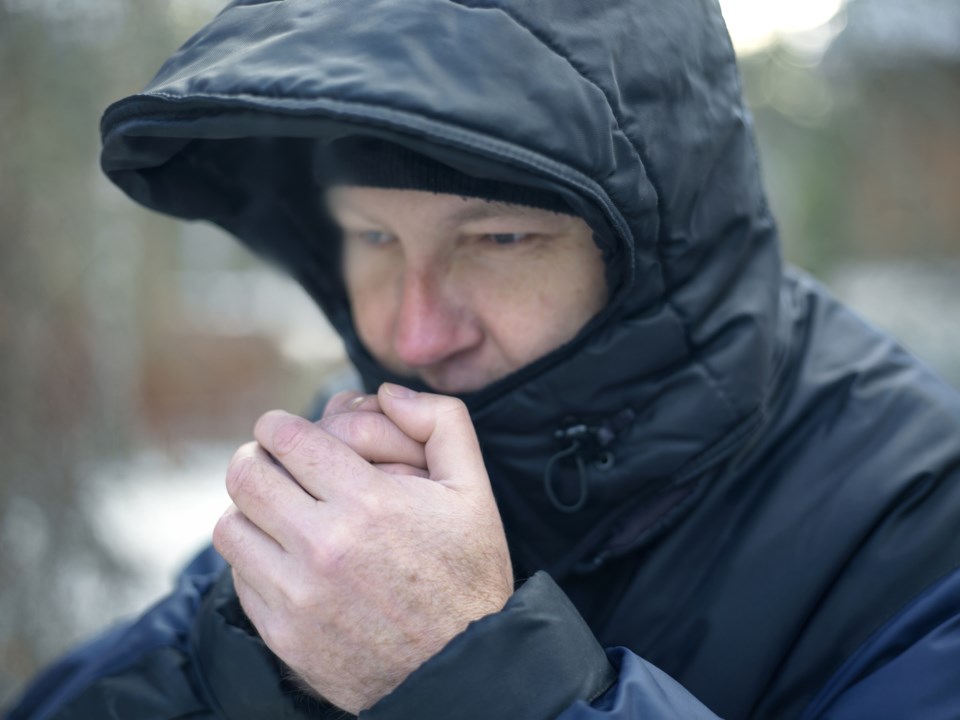The opening of a city-operated cold-weather warming shelter three years ago at Algoma's Water Tower Inn was a one-time initiative that won't be repeated.
At least, it won't happen again unless a city-run warming shelter is needed as part of a larger community evacuation.
Warming places are, have been and will continue to be the responsibility of District of Sault Ste. Marie Social Services Administration Board, says Lauren Perry, the city's community emergency management coordinator.
"Social Services has combined the intent of this process with their own cold-weather protocols to expand shelter capacity and, moving forward, will oversee its activation leveraging the homelessness prevention team for enhanced notifications," Perry said in a report prepared for last Monday's city council meeting.
Last week, councillors received Perry's long-awaited report on what happened during the unusual holiday season three years ago, and whether that pointed to changes needed to the city's warming shelter plan.
Perry was responding to a city council resolution issued shortly after that unusual New Year's Day, which was marred by an extended power outage.
"In the last days of 2019 and first days of 2020, the City of Sault Ste. Marie experienced extreme weather that led to extended loss of power," said the resolution, drafted by Matthew Shoemaker, who was a Ward 3 councillor then but has recently been elected mayor.
"During the extended power loss, the temperatures were relatively mild, resulting in the cold-weather warming shelter plan not being triggered," Shoemaker's resolution said.
"The staff at the City of Sault Ste. Marie recognized the need for a warming shelter despite the relatively mild weather, and in partnership with the Water Tower Inn, provided a space for community residents to find warmth."
"Now therefore be it resolved that staff review the warming shelter plan currently in place and recommend the necessary adjustments based on the needs of the community that have become evident as a result of recent events," said the council-approved resolution three years ago.
Malcolm White, the city's chief administrative officer, offered this explanation at the time:
"Each event that happens has its own variables, whether it's temperature, or in this case, it was the absence of power for many people."
"It was as the power outage extended into subsequent days that we decided it was right to open a warming centre so that people could come to either get warm or have access to running water," White said.
Shoemaker added this: "Obviously, it's just prompted the question: When does our plan get triggered? Hopefully, staff will take the lessons they learned from recent events and come back with recommendations on improving our current policy."
"I'd also ask, while they're looking at it, if they'd consider lowering the threshold at which the plan gets triggered. It currently gets triggered at minus 40. I think that's plenty cold. Minus 30 is plenty cold," Shoemaker said.
That was January 2020.
Last week, Perry's response to city council disclosed that the local temperature threshold has been significantly changed after discussion with Algoma Public Health.
"Since the inception of this process, further work has been undertaken, including consultation with Social Services, the Homelessness Prevention Team and Algoma Public Health," Perry said in her report.
"Algoma Public Health has provided temperature thresholds (-15C, or -20C with the wind chill) when considering vulnerable populations as well as information regarding cold-related injury and illness," she said.
"Before, we were just using Environment Canada thresholds, which are very extreme and not really directed for underhoused populations," Perry told SooToday.
"That policy is now what triggers for them [Social Services] expanded capacity, if they need to open up a shelter for certain hours so people can come in and have that warming component that would be run for the underhoused population for an extreme cold event."
"If we were looking at a larger event, which required an evacuation centre to be set up, that would fall under my umbrella. It would be a different type of thing," Perry said.
The situation on New Year's Day, 2020 was definitely a different kind of thing, she added.
"That was a different situation in that there was that large-scale power outage. It wasn't as much directed at the underhoused population. That was more concerned for the population in general. We were at the point where they might need to access services or power or electricity, for charging devices, for taking showers or things like that."
"Social Services is the agency that oversees the shelters, and those systems already existed, and the processes are already in place."
"The cold-weather shelter piece was never the city's. That was always Social Services."
"The warming shelter is a completely different thing from an evacuation shelter. A warming shelter would sort of always be in place and could be activated if necessary."
Social Services has been encouraging anyone needing a break from the cold to visit its local shelters, including the low-barrier shelter at the former Verdi Hall.
Perry told SooToday that her report contained no recommendations for improving the status quo, as appropriate services systems are already in place.
Her report was received by city council as information.
